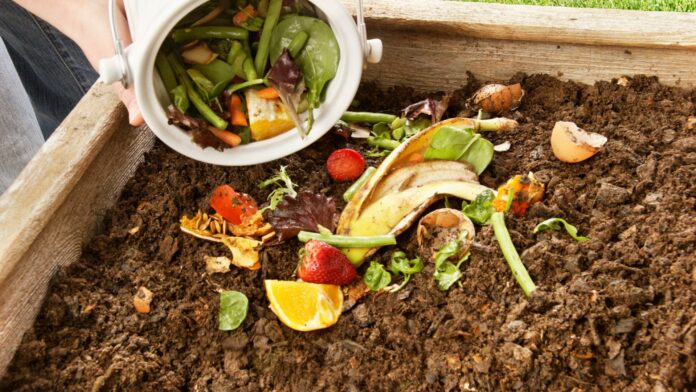United States Residential Organic Compost market is growing at a high CAGR because of the popularity of gardening and healthy eating, increasing environmental consciousness, and adopting environmentally friendly production practices.
A recent study by the strategic consulting and market research firm, BlueWeave Consulting, revealed that the United States Residential Organic Compost market was worth USD 365.7 million in 2021. The market is projected to grow at a CAGR of 8.8%, earning around USD 650.7 million in revenues by the end of 2028. The United States Residential Organic Compost market is booming because of the popularity of gardening and the movement toward healthy eating. The United States Residential Organic Compost Market is also being driven by Americans’ increasing environmental consciousness, adoption of environmentally friendly production practices, and trend for landscaping, as well as rising residential construction activity and public awareness of the drawbacks of chemical fertilizers and pesticides. However, high demand for time and space may be a huge restraining factor for market growth.
Rising residential construction activity coupled with public awareness of the drawbacks of chemical fertilizers and pesticides are driving the market for residential organic compost in the United States.
Another significant element driving up demand for organic compost is the expansion of the residential building in the United States. According to the (USCB) United States Census Bureau, there were 142.1 million housing units in the country in July 2020 compared to 135.3 million in July 2015, a gain of around 5%. Demand for lawn and gardening supplies, such as residential organic compost used in landscaping projects at newly erected buildings, is driven by the increase in housing construction.
Additionally, people in the United States are embracing environmentally friendly production practices as they become more ecologically conscious. Due to their negative impacts on soil and food, fertilizers and pesticides must be used as little as possible, as more people realize. As a result, more people switch from dangerous chemicals to organic compost, driving up market income. As a result, more people are substituting organic compost for harmful chemicals, increasing market revenue.
Sample Report @ https://www.blueweaveconsulting.com/report/united-states-residential-organic-compost-market/report-sample
Demand for time and space may act as a restraining factor for the market growth of residential organic compost in the United States.
Growing fruits & vegetables takes a lot of time and space in one’s home, so it’s not for everyone. Although eating healthily is becoming more popular, the ongoing work required to raise veggies can be stressful for one’s personal life. Since gardening takes time and people don’t have enough of it, it is becoming less popular as people return to their regular lives or, as we can say, in the post-COVID-19 era. Additionally, the market for organic compost is hampered by the fact that growing fruits and vegetables take up a lot of area in a home. People who don’t have enough room are unable to garden and cannot produce fruits and vegetables.
The offline segment accounted for the largest contribution in the United States.
The residential organic compost industry in the United States saw the biggest contribution from the offline segment. Most residential customers in the United States still purchase organic compost via garden centers, topsoil distributors, or other physical retailers. Since the manufacturers’ offerings of organic compost vary greatly in quality. Customers prefer to smell and feel the compost in their hands to check it out on their own due to their concerns, and they frequently enquire about the compost’s components and creation from the supplier. Residential customers can purchase organic compost through Amazon, a well-known e-commerce site in the United States. One of the popular organic compost producers in the United States, Charlie’s Compost, sells their goods directly on Amazon. The state of Kentucky has certified its compost as organic, and it sells its normal compost for USD 20 for 10lbs.
Impact of COVID-19 on United States Residential Organic Compost Market
The country’s demand for organic compost has benefited from the COVID-19 outbreak. During the lockdowns, people had plenty of time to engage in activities other than their primary jobs since the pandemic forced them to remain inside their homes and a greater number of people engaged in gardening. People’s eating habits alter during the pandemic because they have more time to focus on everything they do, including eating and what specific foods they consume. By figuring out all these things, a trend for healthier eating emerges. Due to the COVID-19 pandemic in the United States, several families began growing produce for their consumption. As a result, there was an upsurge in demand for organic compost for residential use.
Competitive Landscape
Key players operating in the United States Residential Organic Compost market are Malibu Compost, American Composting, Inc., Cedar Grove, Atlas Organics, Blue Ribbon Organics, Garden-Ville, and Dairy Doo, Vermont Compost Company, The Compost Company, Walt’s Organic and other prominent players. Players from both domestic and foreign markets are present. To improve their portfolio offerings in the market, major market players concentrate on methods including innovation and new product releases in the retail sector for organic compost.
The in-depth analysis of the report provides information about growth potential, upcoming trends, and the United States Residential Organic Compost market statistics. It also highlights the factors driving forecasts of total market size. The report promises to provide recent technology trends in the United States Residential Organic Compost market and industry insights to help decision-makers make sound strategic decisions. Furthermore, the report also analyzes the market’s growth drivers, challenges, and competitive dynamics.
Contact Us:
BlueWeave Research Blog
Phone No: +1 866 658 6826
Email: info@blueweaveconsulting.com














